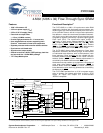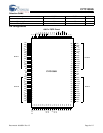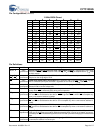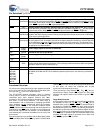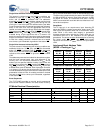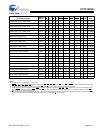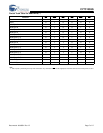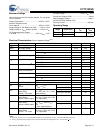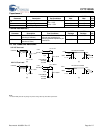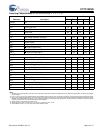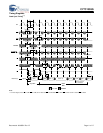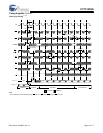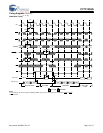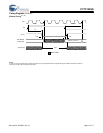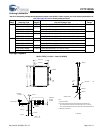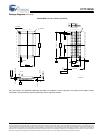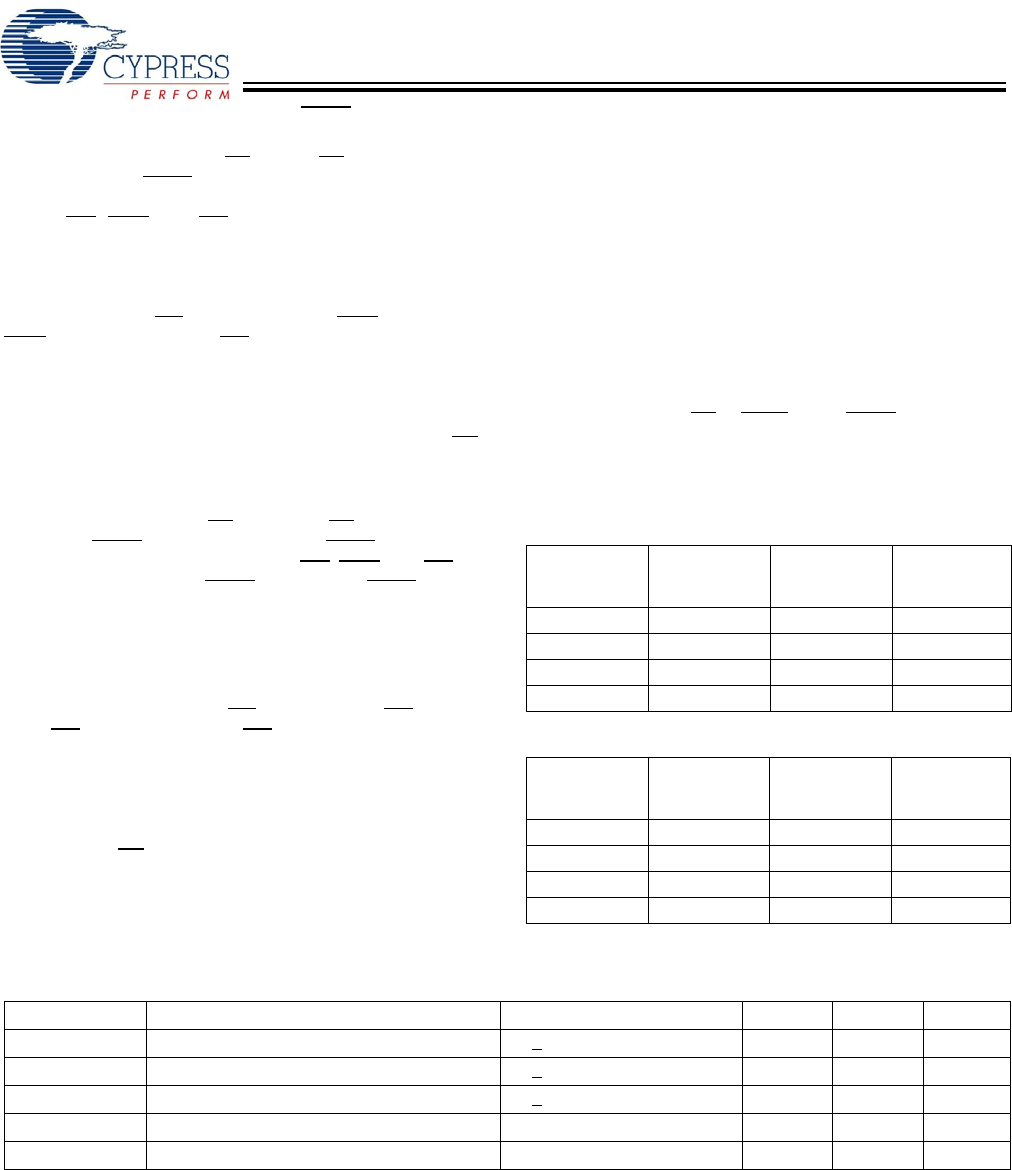
CY7C1338G
Document #: 38-05521 Rev. *D Page 5 of 17
Single Write Accesses Initiated by ADSP
This access is initiated when the following conditions are
satisfied at clock rise: (1) CE
1
, CE
2
, CE
3
are all asserted
active, and (2) ADSP
is asserted LOW. The addresses
presented are loaded into the address register and the burst
inputs (GW
, BWE, and BW[
A:D
])are ignored during this first
clock cycle. If the write inputs are asserted active (see Write
Cycle Descriptions table for appropriate states that indicate a
write) on the next clock rise, the appropriate data will be
latched and written into the device. Byte writes are allowed.
During byte writes, BW
A
controls DQ
A
and BWB controls DQ
B
.
BWC
controls DQ
C
, and BW
D
controls DQ
D
. All I/Os are
tri-stated during a byte write.Since this is a common I/O
device, the asynchronous OE input signal must be deasserted
and the I/Os must be tri-stated prior to the presentation of data
to DQs. As a safety precaution, the data lines are tri-stated
once a write cycle is detected, regardless of the state of OE
.
Single Write Accesses Initiated by ADSC
This write access is initiated when the following conditions are
satisfied at clock rise: (1) CE
1
, CE
2
, and CE
3
are all asserted
active, (2) ADSC
is asserted LOW, (3) ADSP is deasserted
HIGH, and (4) the write input signals (GW
, BWE, and BW
[A:D]
)
indicate a write access. ADSC
is ignored if ADSP is active
LOW.
The addresses presented are loaded into the address register
and the burst counter/control logic and delivered to the
memory core. The information presented to DQ
[A:D]
will be
written into the specified address location. Byte writes are
allowed. During byte writes, BW
A
controls DQ
A
, BW
B
controls
DQ
B
, BW
C
controls DQ
C
, and BW
D
controls DQ
D
. All I/Os are
tri-stated when a write is detected, even a byte write. Since this
is a common I/O device, the asynchronous OE input signal
must be deasserted and the I/Os must be tri-stated prior to the
presentation of data to DQs. As a safety precaution, the data
lines are tri-stated once a write cycle is detected, regardless
of the state of OE
.
Burst Sequences
The CY7C1338G provides an on-chip two-bit wraparound
burst counter inside the SRAM. The burst counter is fed by
A[1:0], and can follow either a linear or interleaved burst order.
The burst order is determined by the state of the MODE input.
A LOW on MODE will select a linear burst sequence. A HIGH
on MODE will select an interleaved burst order. Leaving
MODE unconnected will cause the device to default to a inter-
leaved burst sequence.
Sleep Mode
The ZZ input pin is an asynchronous input. Asserting ZZ
places the SRAM in a power conservation “sleep” mode. Two
clock cycles are required to enter into or exit from this “sleep”
mode. While in this mode, data integrity is guaranteed.
Accesses pending when entering the “sleep” mode are not
considered valid nor is the completion of the operation
guaranteed. The device must be deselected prior to entering
the “sleep” mode. CE
s, ADSP, and ADSC must remain
inactive for the duration of t
ZZREC
after the ZZ input returns
LOW.
Interleaved Burst Address Table
(MODE = Floating or V
DD
)
First
Address
A1, A0
Second
Address
A1, A0
Third
Address
A1, A0
Fourth
Address
A1, A0
00 01 10 11
01 00 11 10
10 11 00 01
11 10 01 00
Linear Burst Address Table (MODE = GND)
First
Address
A
1
,
A
0
Second
Address
A
1
,
A
0
Third
Address
A
1
,
A
0
Fourth
Address
A
1
,
A
0
00 01 10 11
01 10 11 00
10 11 00 01
11 00 01 10
ZZ Mode Electrical Characteristics
Parameter Description Test Conditions Min. Max. Unit
I
DDZZ
Sleep mode standby current ZZ > V
DD
– 0.2V 40 mA
t
ZZS
Device operation to ZZ ZZ > V
DD
– 0.2V 2t
CYC
ns
t
ZZREC
ZZ recovery time ZZ < 0.2V 2t
CYC
ns
t
ZZI
ZZ active to sleep current This parameter is sampled 2t
CYC
ns
t
RZZI
ZZ Inactive to exit sleep current This parameter is sampled 0 ns



